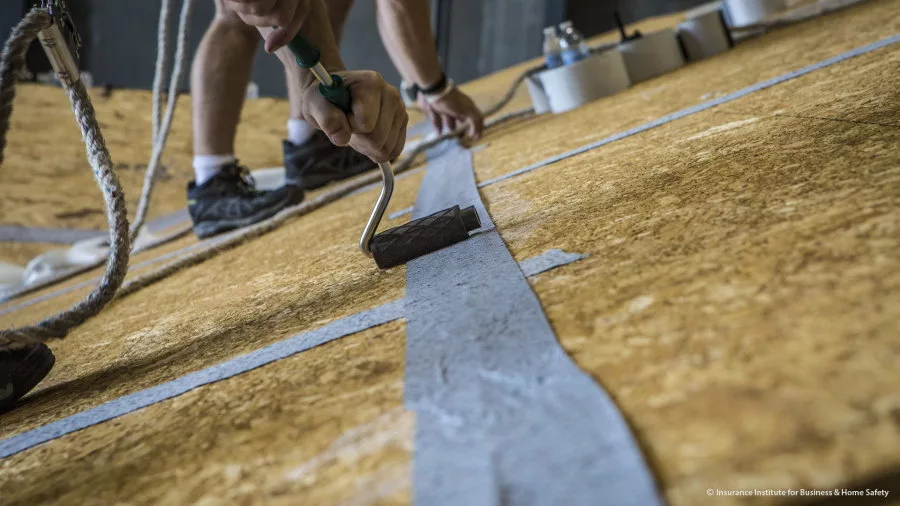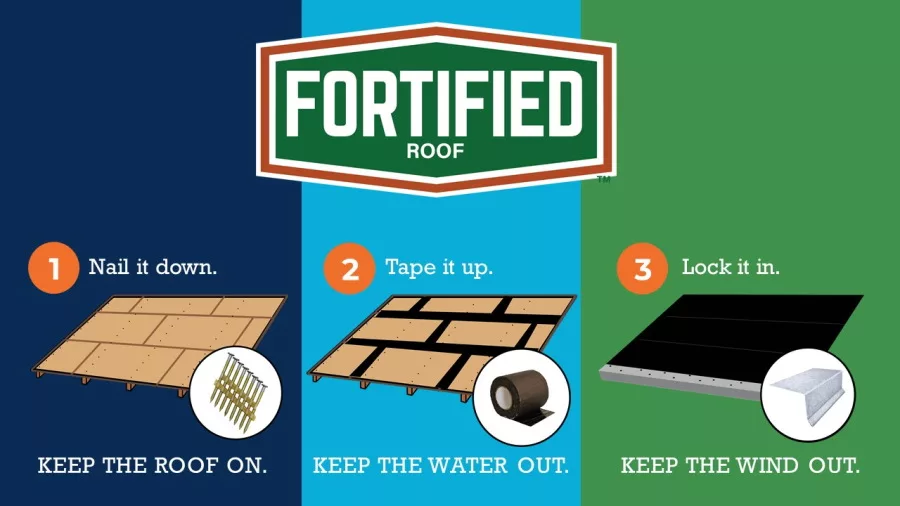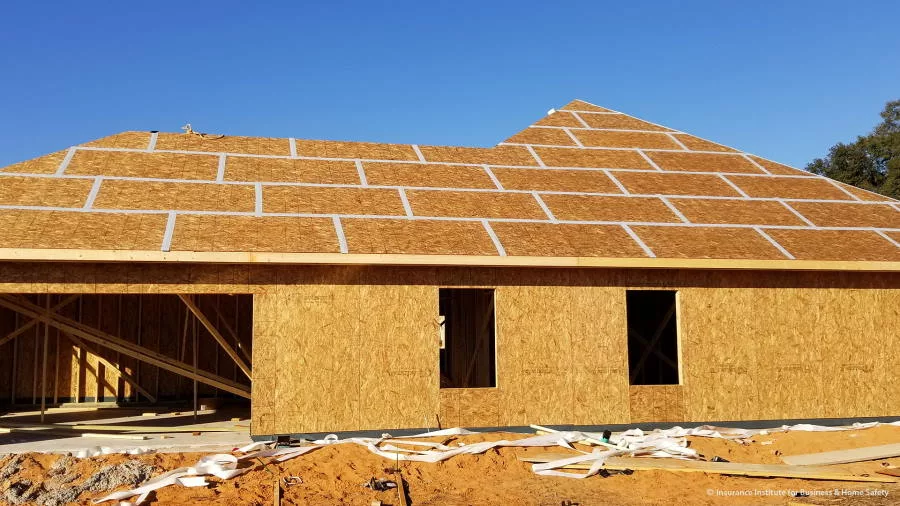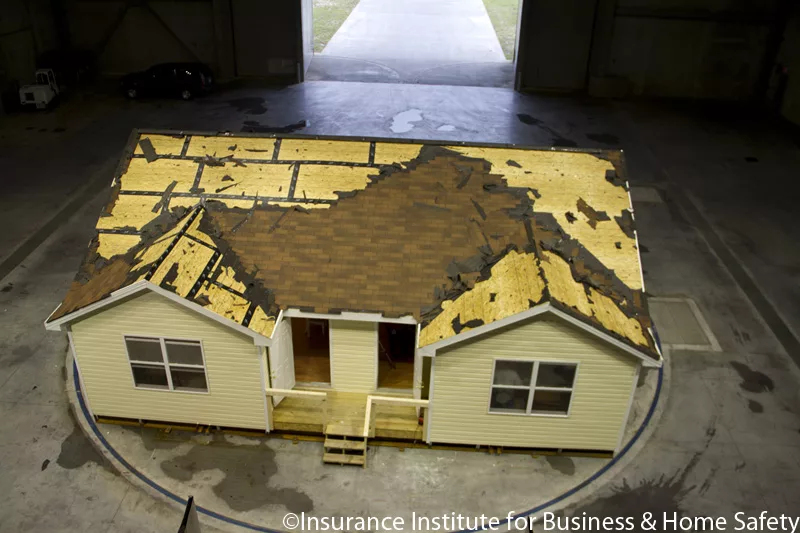IBHS Releasing New FORTIFIED Virtual Training for Roofing Contractors

Photos courtesy of IBHS.



IBHS tests roof installation techniques against severe weather conditions at its Research Center in South Carolina.
The demand for resilient roofs continues to rise across the country, but training to learn how to install such impervious roofs is at a stand-still due to limitations caused by the COVID-19 pandemic.
That’s why the Insurance Institute for Business & Home Safety (IBHS) is set to launch a virtual training series on July 17 to instruct roofing contractors on how they can install FORTIFIED Roofs™.
IBHS’ FORTIFIED Roof program is a three-tiered system that strengthens a roof to above-code standards that better resist severe weather events. IBHS states that 70% to 90% of catastrophic homeowners’ insurance claims include roof damage, so it was essential to launch its virtual training with roofing contractors in mind.
“As we were looking at which groups should we focus on with this virtual training, roofing contractors were hands-down the priority,” said Fred Malik, managing director of FORTIFIED Building Products. “They play such a vital role, every FORTIFIED Home™ features a FORTIFIED Roof.”
The virtual training’s focus will be on providing information rather than assessing technical competency. IBHS utilizes videos, photos and text to show examples of the correct and incorrect practices that go into building a FORTIFIED Roof. The training consists of 10 modules that take a total of two hours to complete, but participants can consume them at their own speed.
The first few modules walk contractors through what IBHS is and the general process of creating a FORTIFIED Roof. This includes details about having the roof inspected by an independent FORTIFIED Home Evaluator so it can be certified.
The remaining modules demonstrate the various methods in which a roof can be FORTIFIED. For instance, FORTIFIED requires that the substrate is attached to the roof framing with an aggressive nail pattern using specific types of nails. FORTIFIED standards also call for beyond-code roof deck sealing and enhancing the edge of an asphalt shingle roof.
“It doesn’t take a big change in how you execute, but it’s that matter of taking that informed approach to it,” Malik said.
IBHS didn’t arbitrarily decide that tacking on a few extra nails makes a roof stronger. Around two decades of science and testing using a $40-million research center in South Carolina informs IBHS’ standards. This means it is able to provide numerous methods for strengthening multiple roof types, including metal, tile or asphalt.
“We provide guidance so that it really is available to anybody at any price point — no matter what roof cover they’re selecting or what material they’re working with, there’s a way to make it a better-performing installation,” Malik said.
For those who complete the course and wish to be included in IBHS’ directory, there will be a multiple-choice “FORTIFIED WISE-Roofer” exam available. Unlike the modules, the exam must be completed within a one-hour time limit, and must score an 85% or better to pass.
“When we get back into the normal world and travel is available, we’ll continue to do some additional in-person training,” Malik said.
Malik said once the virtual training is available, the intent is to have contractors participate and provide feedback so they can fine-tune it. The next course following the roofing contractor training is expected to be IBHS Evaluator certification, which would teach people how to properly inspect and submit documentation for a FORTIFIED Home.
IBHS' focus has been on Alabama, the Gulf Coast and the North Carolina coast, but is beginning to see pent-up demand from locations in the central United States. Malik said taking advantage of the training is a way for roofing contractors to differentiate themselves from the competition as states continue to reopen.
"FORTIFIED really aligns with....being a trusted resource, being on the cutting edge of what it means to install a durable roof," Malik said.
Roofing contractors can learn more and sign up for training alerts at fortifiedhome.org/training.
Looking for a reprint of this article?
From high-res PDFs to custom plaques, order your copy today!







